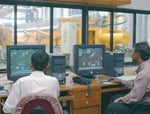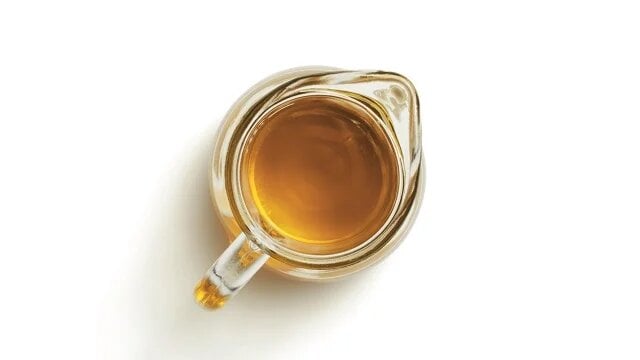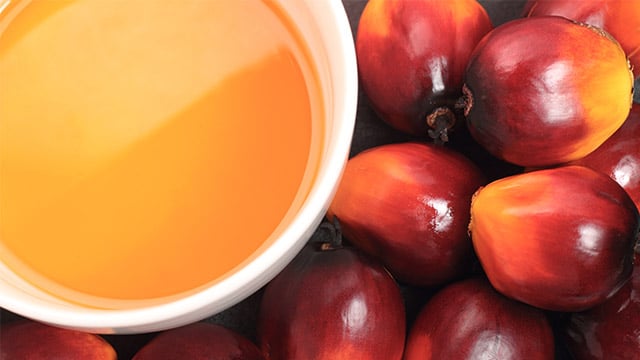The Liberty to improve health
When Liberty Oil Mills erected fully automated plants to improve and make its products healthier, it installed a new process for fat modification. This is an innovative alternative to traditional hydrogenated vegetable oil processing.
DATE 2023-11-28 AUTHOR Rasheeda BhagatOver half a century ago, Hamza A. Kader sold oranges in a handcart at the Brabourne cricket stadium in Mumbai to meet the day-to-day needs of his family. Today in the same city he presides over the fortunes of the Liberty Group of companies with a combined annual turnover of 30 billion rupees (648 million USD).
For Hamza A. Kader, the 72-year-old Chairman of the Liberty Oil Mills Ltd, one of the topmost market players in India in the refined oil segment, with a processing capacity of 2100 tonnes a day, it has been a long and fruitful journey.
As his son and Managing Director of the company, Parvez H. Kader, points out, this is the third generation of the family in vegetable oil extraction. But the difference is between extracting a negligible amount through manually-operated expellers to constructing India’s first fully automated plants for separating palm oil into the liquid palm olene and the crystallized palm stearin through a process called fractionation. While the former product – refined and liquid palm oil – is ready for the market, the stearin is mixed with other vegetable oils such as soy or sunflower and then made free of trans fatty acids (commonly referred to as trans fat), proved to be harmful to health, particularly the heart.
This new process for fat modification, known as interesterification, is a modern version of hydrogenated vegetable oil processing, and the resultant product is creamy and semi-solid. Industry experts think it’s only a matter of time before this trans fat free product, used by bakeries and chocolate makers, replaces the traditional hydrogenated oil, widely referred to in India as vanaspati.
Financed by grandmother’s jewellery
Liberty Oil was the first Indian company to construct both these plants at its factory in Shahpur, located about 100 km from Mumbai in a stretch of welcoming green expanse away from the hustle, bustle and noise of India’s commercial capital.
The company was started in 1953 with a tiny factory costing 8000 rupees. “But my father had only 4000 rupees, and he raised the rest by selling my grandmother’s gold ear rings,” says Parvez Kader.
Today the company’s core business is edible oil – about 70% –, and its integrated operations include crushing seeds to extract oil, refine and market it. Liberty Oil sells palm oil, vanaspati, soybean and sunflower oil. It also exports frozen fish, shrimps, squid and crabs to western markets. Next on the cards is the production of margarine and some special fats required in the chocolate industry.
“Seven years ago the Mumbai factory’s capacity was only 100 tonnes per day; today our Shahpur factory is the single largest refining unit in India, having an installed refining capacity of 2100 tonnes,” he says.
Over the years the family-owned business grew and in 1979 four centrifuges were bought from Alfa Laval (then Vulcan Laval). “These were their first centrifuges supplied in India,” he recalls with a smile. Two years later the company bought a few more centrifuges for its short mix plant. ‘Short mix’ is a term specific to Alfa Laval’s process of neutralization and washing and is a centrifugal separation based process. This is the first stage in refining seed oil and the plant is used for removing impurities from the crude oil.
By the turn of the century, as government policies and import duty structures changed drastically, the company decided to go in for value added products to keep the bottom line growing. “For our expansion programme in 2000 we looked at Alfa Laval because they had established themselves as a trustworthy partner,” says Kader.
At present India has a per capita edible oil consumption of 10.5 kg; five years ago, it was only 8 kg. “The world average is 24 kg. So we Indians are still undernourished and the scope for this industry is immense… which means for Alfa Laval too there are huge opportunities in India,” he says.
Meeting changed consumption pattern
Liberty Oil’s market share in the Indian edible oil segment is 10 per cent; and will increase to 14–16 per cent when its 600-tonne plant in Karwar in southern India, for which Alfa Laval has bagged the order, is commissioned next year. Most of the oil Liberty Oil produces is sold in bulk to big companies including Britannia and Parle, Cadbury and McDonalds.
 Parvez Kader says that Liberty Oil is the second largest importer of oil in India at 800 000 tonnes a year, of which about 60 to 65 per cent is palm, with the remaining being soy bean and sunflower oil. On the need for putting up fractionation and interesterification plants, he explains that when the import duty structures were favourable, it imported RBD (refined, bleached, deodorized) palm oil into India. But, with change in government policy, it switched to importing crude edible oil and refining it at its plants.
Parvez Kader says that Liberty Oil is the second largest importer of oil in India at 800 000 tonnes a year, of which about 60 to 65 per cent is palm, with the remaining being soy bean and sunflower oil. On the need for putting up fractionation and interesterification plants, he explains that when the import duty structures were favourable, it imported RBD (refined, bleached, deodorized) palm oil into India. But, with change in government policy, it switched to importing crude edible oil and refining it at its plants.
“Now there are indications that by 2006 the oil consumption pattern will change and people will switch to products free of trans fatty acids on health grounds. Today hydrogenated oil is banned in Europe and by 2006 it will be either banned in the US or face problems from consumers. I expect products with trans fatty acids to bear a mandatory warning like the one we have on cigarette packs!”
On why it chose Alfa Laval for its latest plants to manufacture the trans fat free product it sells either in bulk or under the brand name Malta, Kader says, “Even though Alfa Laval had not put up such a plant in India, or anywhere in the world, we have trust in them. Its biggest asset is its people. Good technology is available throughout the world; India is open and you can buy anything. But the Alfa Laval representative’s coaxing and persistence, being there on the spot and attending to the problems, were factors that won our trust.”
G. Badri Narayanan, Joint Vice President, recalls that as Liberty Oil strove to meet the growing demand for refined palm oil in the Indian market, “we first thought of a 500-tonne plant, but Alfa Laval convinced us that we should go in for a 1000-tonne plant as that would be more cost effective. We gave them the order in August 2002 and they quickly commissioned it in 2003 April.”
He marvels at the fact that on the job “they sometimes forgot the business part and focused only on the technical solutions. The coordination and cooperation between the two teams was excellent. We can ask Alfa Laval for help even at midnight, and they are available. That inspires confidence.”
Quick decision
Subodh Raina, Additional General Manager, Alfa Laval (India), gives full marks to the Liberty Oil chairman, whom he describes as a “straightforward man with energy, vision, sharp intellect and a quick decision making capacity, once you convince him.” He recalls the time when the first order of 20 million rupees (432 000 USD) for the 150-tonne deodorizing unit was finalised.( Deodorization is the last stage of oil refining, when the odour is removed from the oil.) “Mr Hamza took a quick decision, said that they were satisfied with our presentation and that we could consider it an order.”
The outcome was an order for a 150-tonne deodorizer and within a few months of its commissioning came another order for a 350-tonne complete physical refinery, followed by another order for 1000-tonne complete physical refinery. On Liberty Oil’s vision, Parvez Kader says: “I have always been taught to look and move a little ahead of time. We have ISO 9001 certification and we are aiming at the HACCP (Hazard Analysis Critical Control Point) system of food safety management. The HACCP quality is the most effective way for food producers to ensure consumer protection.”
His dream for the future is to produce healthy products, “all of which are free from trans fatty acids. We don’t only want to provide healthy products for India, but also to do business with social and environmental responsibility.” Towards this end, the Liberty frozen foods factory in the southern town of Chennai, an Indian city that is perennially starved of water, has been supplying free drinking water for years to five villages in the area.
“Along with doing successful business, I’ve also been taught by my father that however big you become, you must keep your feet firmly planted on the ground, and do something for society. I try to keep that in mind all the time.”
Alfa Laval / Liberty Oil Mills cooperation
The partnership between Alfa Laval (India) and Liberty Oil Mills blossomed when the oil refiner tapped the Swedish major’s skills to upgrade and expand its refining capabilities and add value to its products.
Alfa Laval was commissioned to construct a fractionation plant to separate or fractionate the liquid palm olene from the crystallized palm stearin. In this process, which has to be continuous, the RBD palm oil is first pre-heated before being fed into the crystallizer.
Next comes the filtering of the ‘olein’ and separating it from the solid ‘stearin’. The challenge for Alfa Laval to set up this plant became greater considering that this would be the first fractionation plant in India.
The second job order was not easy either; in this process, value has to be added to the stearin to not only fetch a better market price, but also make it free from trans fatty acids. These have been referred to by health experts as “sneaky, phantom or stealth fats”.
This process is called interestification, and to redistribute the fatty acids, the oil has to be vacuum dried, mixed with a catalyst, contacted with water and acid to precipitate soap, then separated from the soapstock before being vacuum dried again. It is critical that the oil is completely dried as the catalyst is extremely sensitive to water.
“This again was a first time in India and also for us,” says Subodh Raina, Additional General Manager, Alfa Laval (India). “It was indeed a challenge because most customers don’t like taking chances with a first-timer, but we convinced them that we can draw from the experience of Alfa Laval worldwide. Now we are confident thanks to the quality of the end product being excellent.”
Says G. Badri Narayanan, Joint Vice President, Liberty Oil Mills, “The way Alfa Laval handled the project, their interaction and co-operation with our team, and their willingness to reach out and help with additional inputs not highlighted in the order, gave us confidence. Our problem became their problem and vice versa. Ultimately this is a success of team work.”
“The new process for fat modification results in healthier products with a better market price,” says Subodh Raina, Alfa Laval India.
You might also be interested in…
Optimizing the edible oil process
Refining crude oil into edible oil requires deep process knowledge—from degumming, neutralization and dewaxing to bleaching, deodorizing and GE and 3-MCPD mitigation.


